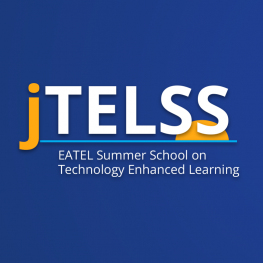Speakers
Mohamad Firdaus Che Abdul Rani
Asia Pacific University of Technology & Innovation, MalaysiaStart
09/06/2023 - 16:00
End
09/06/2023 - 17:30
eduQRation
Friday 09/06 16:00-17:30h
Workshop Space B
Abstract
QR Code technology offers numerous advantages to the technologically savvy educator. In addition to owning smart phones that can read QR Codes in a matter of seconds, most children also have access to laptops at school or even at home. Students will not be perturbed by a technology they have likely already utilised outside of school. After answering a few questions, people are likely to be intrigued at the idea of decrypting information with a click of a button. During the learning event, QR Code can be utilised to engage a “Digital Native” audience by offering access to the presentation’s online resources, receiving quick feedback, and conducting a question-and-answer (Q & A) session. This type of activity is the most typical element of a learning event, and QR Code can increase audience engagement and possibly improve presenter-audience relations. In this tutorial, we will cover the use of QR Codes in everyday life and how they may be implemented in and out of the classroom, as well as build QR Code-based learning materials for non-IT-savvy educators.
Needs Analysis
It is not a novel concept to use games to engage students in active learning. In an effort to create a fun and engaging learning environment for students, educators have progressively incorporated a variety of games into their lesson plans during the past several years. Interactive, collaborative, and competitive games aim to stimulate and encourage student participation in the learning process, despite the fact that this can be highly difficult and time-consuming. There are numerous interesting open-source games-based educational tools that can be used to improve teaching and learning strategies in the present day, and QR Code-based educational content is introduced to provide educators with more options that will inspire them to be more creative inside and outside the classroom.
Learning Objectives
Potential knowledge acquired through the workshop:
- QR Code usage in everyday life
- Innovative idea on how QR Code can be utilised inside and outside the classroom
- Exploration of how QR Code Technology may be embedded into the existing Learning Management System
- Prototype/idea of QR Code based learning contents
- Actual experience with the QR Code for Education
Pre-activities
The following is the preferred prerequisite knowledge: Utilization of mobile phone, internet browser and web application development concept
Session Description
Knowledge Sharing, Sharing Experience Hands-on session:
- Introduction to QR Code Technology
- QR for Education from the Educator and Application Developer’s perspective
- Designing QR based learning contents
- Case Study 1 – QR based Ubiquitous Learning at Asia Pacific University of Technology & Innovation (APU), Malaysia
- Case Study 2: eduQRation prototype

